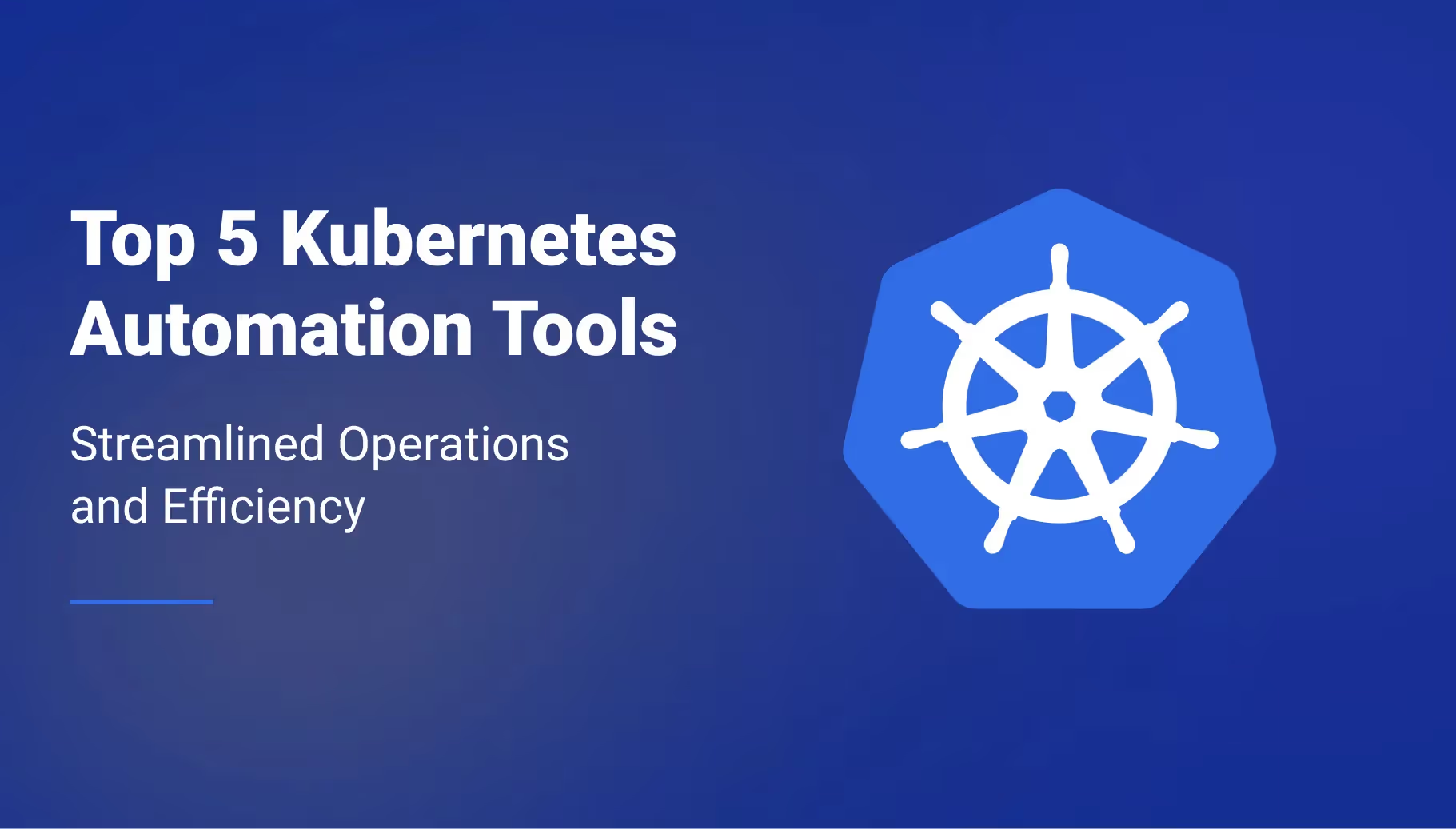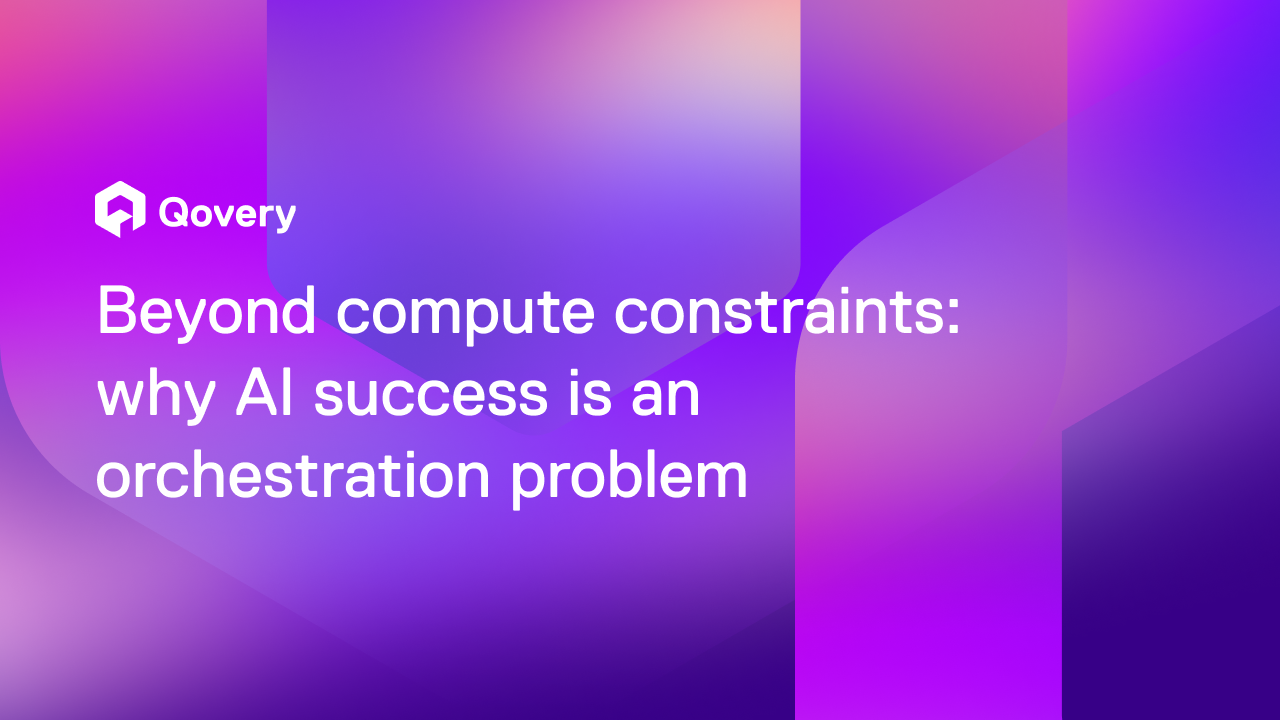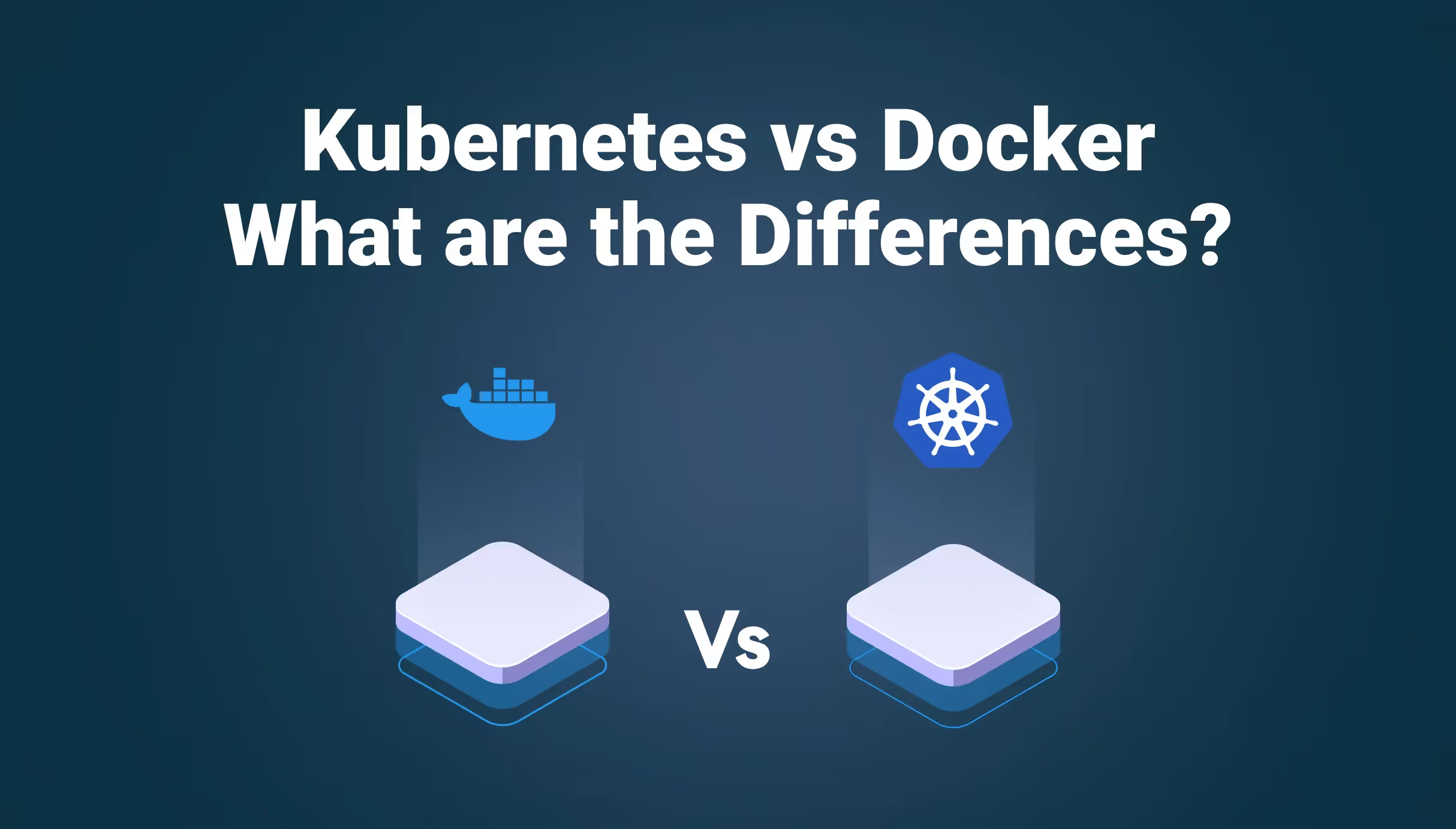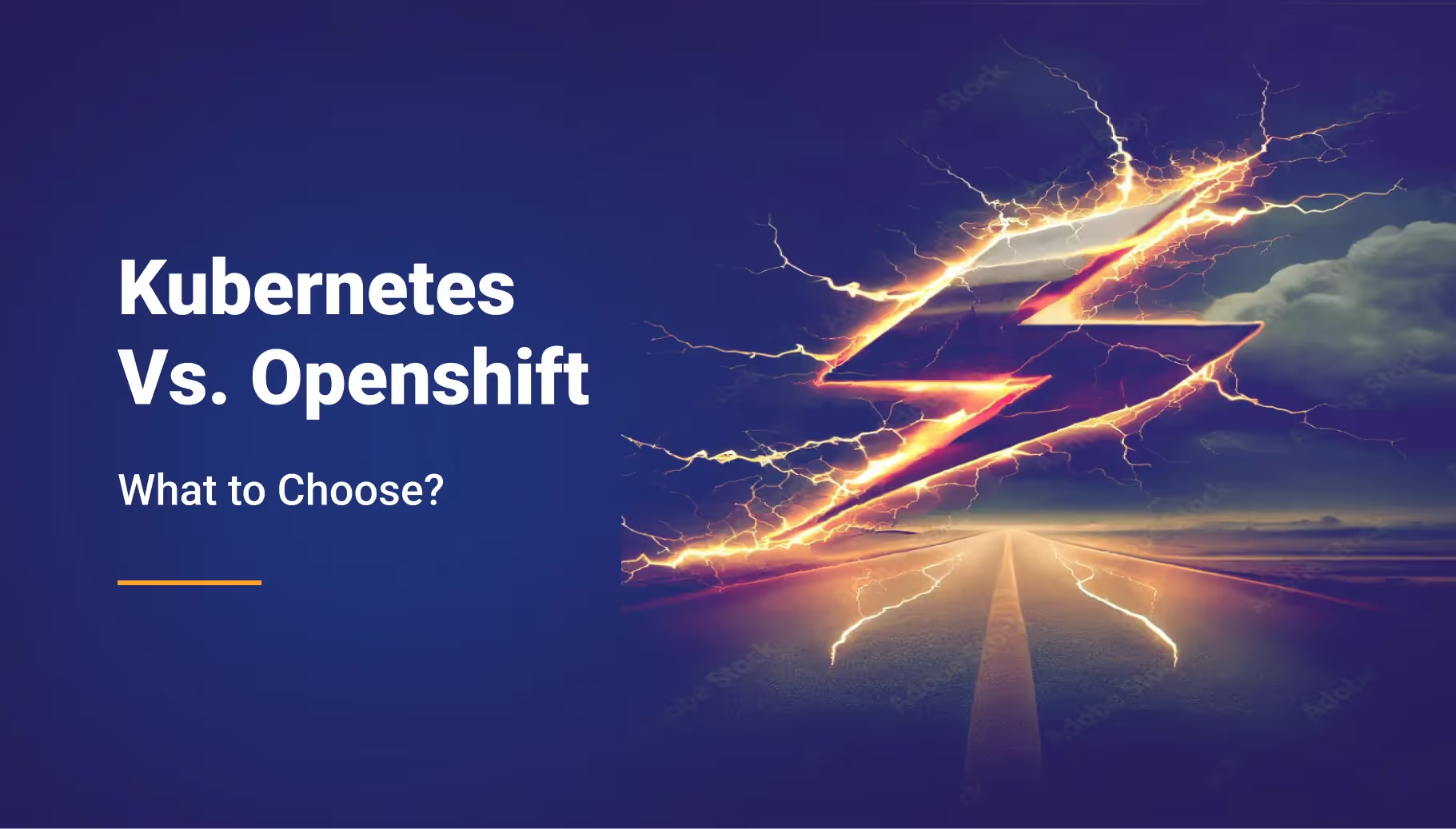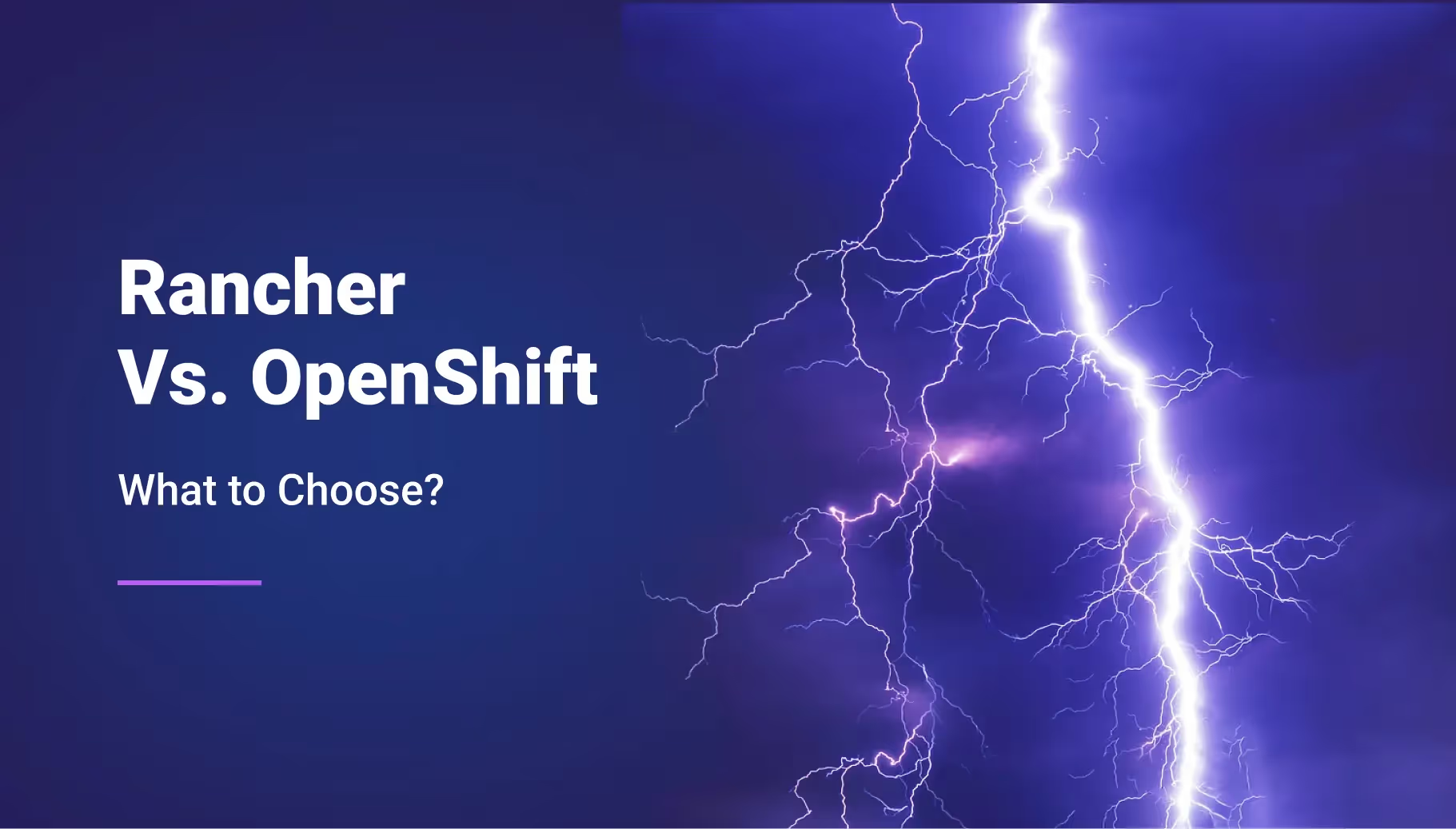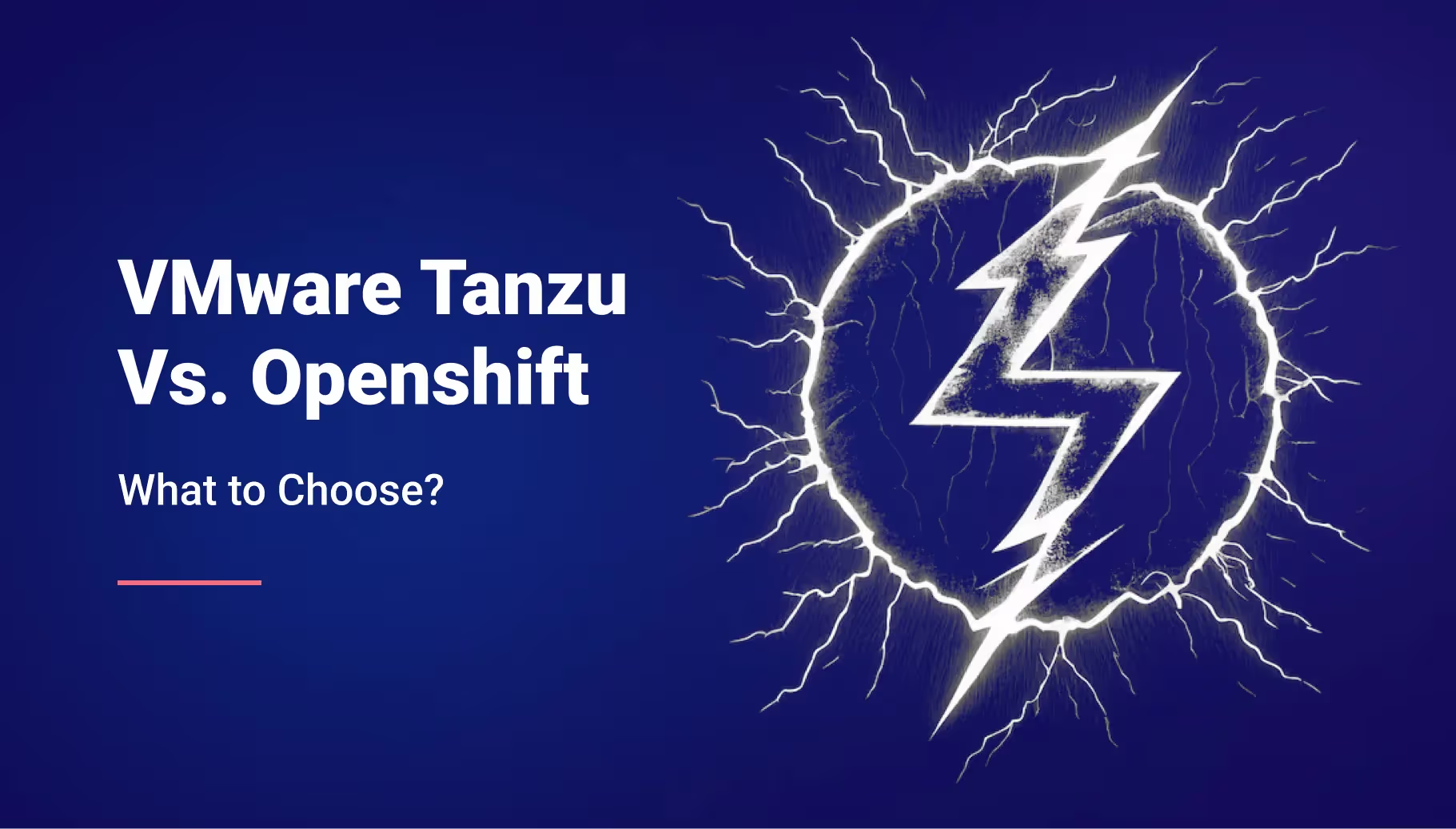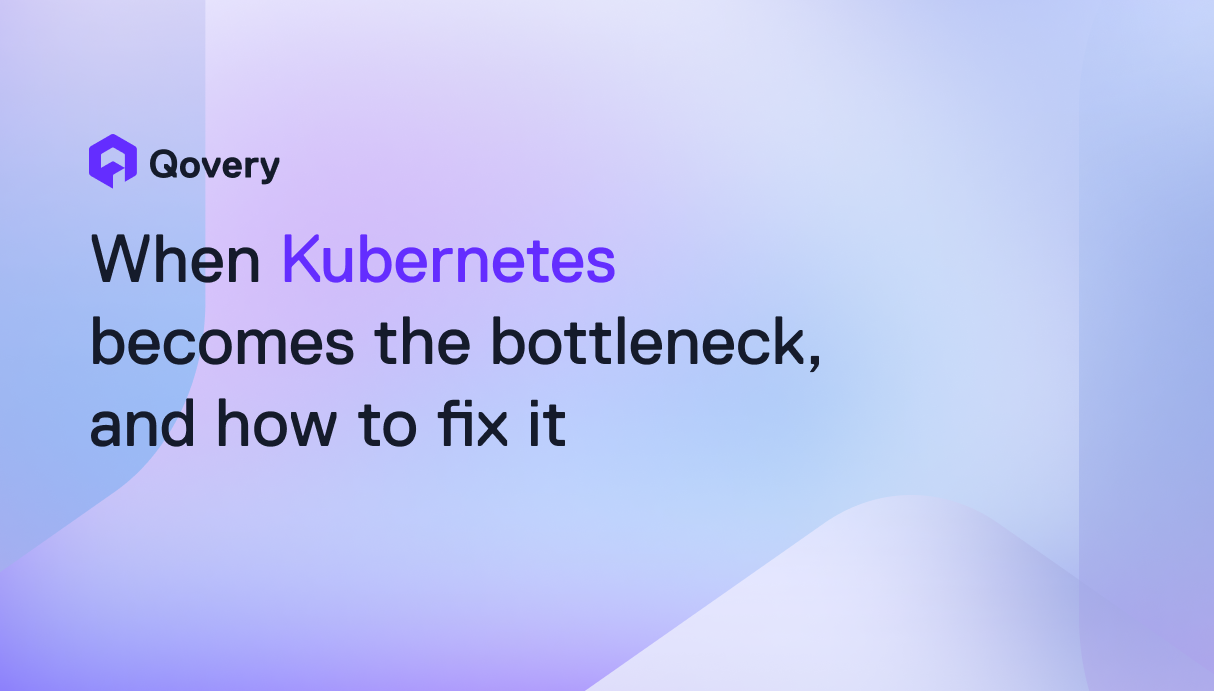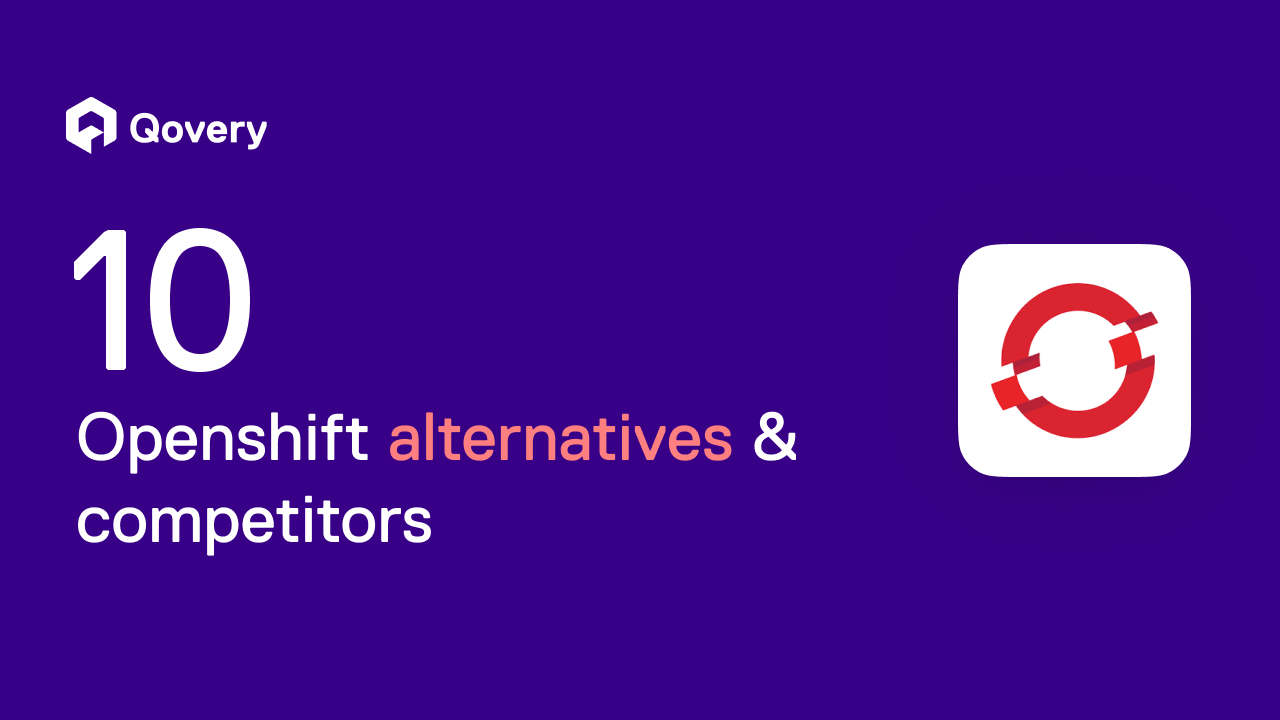


Qovery Demo Day Summary - November 2022

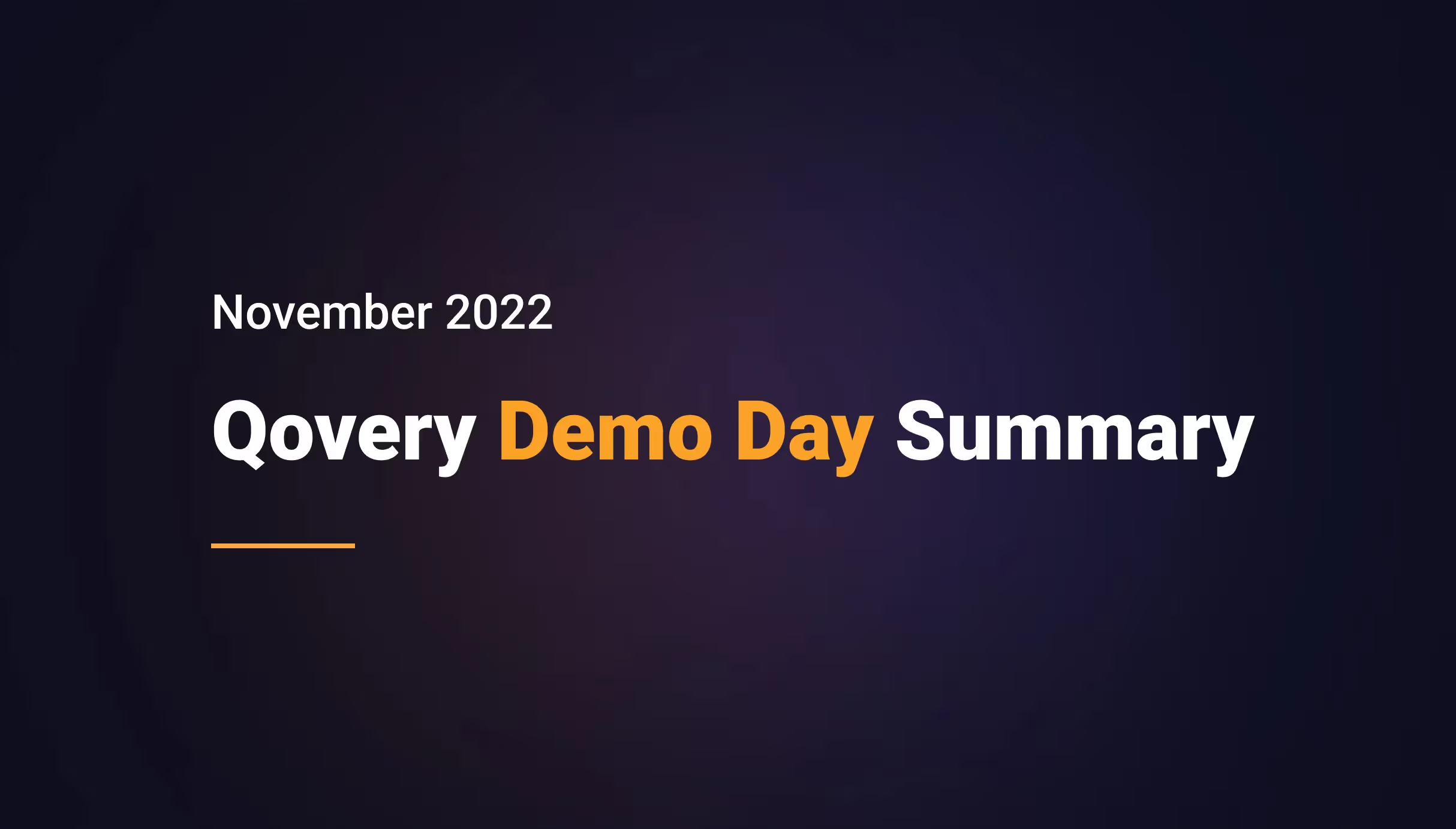

Agenda
5min: Qovery quick intro
10min: What we worked on last month
10min: RBAC (Role-based access control) and Container Demo
5min: What's coming next
5min: Job Deployment with Alessandro
Qovery quick intro
Today, developers’ teams need to be more autonomous to deliver new features rapidly. However, providing access to infrastructure without sufficient control results in IT waste, including costly cloud security breaches and skyrocketing infrastructure costs. It is not acceptable for most organizations, especially in highly regulated industries.
That’s where Qovery comes to the rescue!
Qovery is a Kubernetes management software that empowers developers to test and release features faster with on-demand environments - in your cloud and in less than 30 minutes. Qovery is open-source, leverages Kubernetes, and the managed service of each cloud provider is supported.
The deep integration of Qovery services (databases, load balancers, domains…) enables developers to manage their own cloud environments in non-production environments while allowing DevOps teams to accelerate infrastructure provisioning dramatically.
What we worked on last month
The last quarter of the year is always the one where you want to finalize essential features, and improve your product, even more to make it as smooth as possible, and so far, we are keeping our promises:
Console V3 (Beta Testing)
First, if you followed our last Demo Day, which was at the beginning of the summer, you probably saw the interview we did with Benjamin, Frontend Engineer at Qovery, talking about the V3 console; well, after a hard summer of work, the console V3 is finally in Beta testing.
I highly recommend you try it out if you haven’t yet. We created this V3 to Smooth the user journey and give you more transparency with much more insight into your infrastructure; this includes usage and cost. We also added the advanced settings straight into the V3 console.
Database Creation Flow (Console V3)
When we launched the console V3 in Beta, there were some missing parts, including the database creation flow; it is now ready as well, so you can set up your database directly from the V3 without going back and forth with the V3.
But that’s not all because you can also change the General Settings and the Resources of your Database on the V3, head to your Database, and then click on Settings.
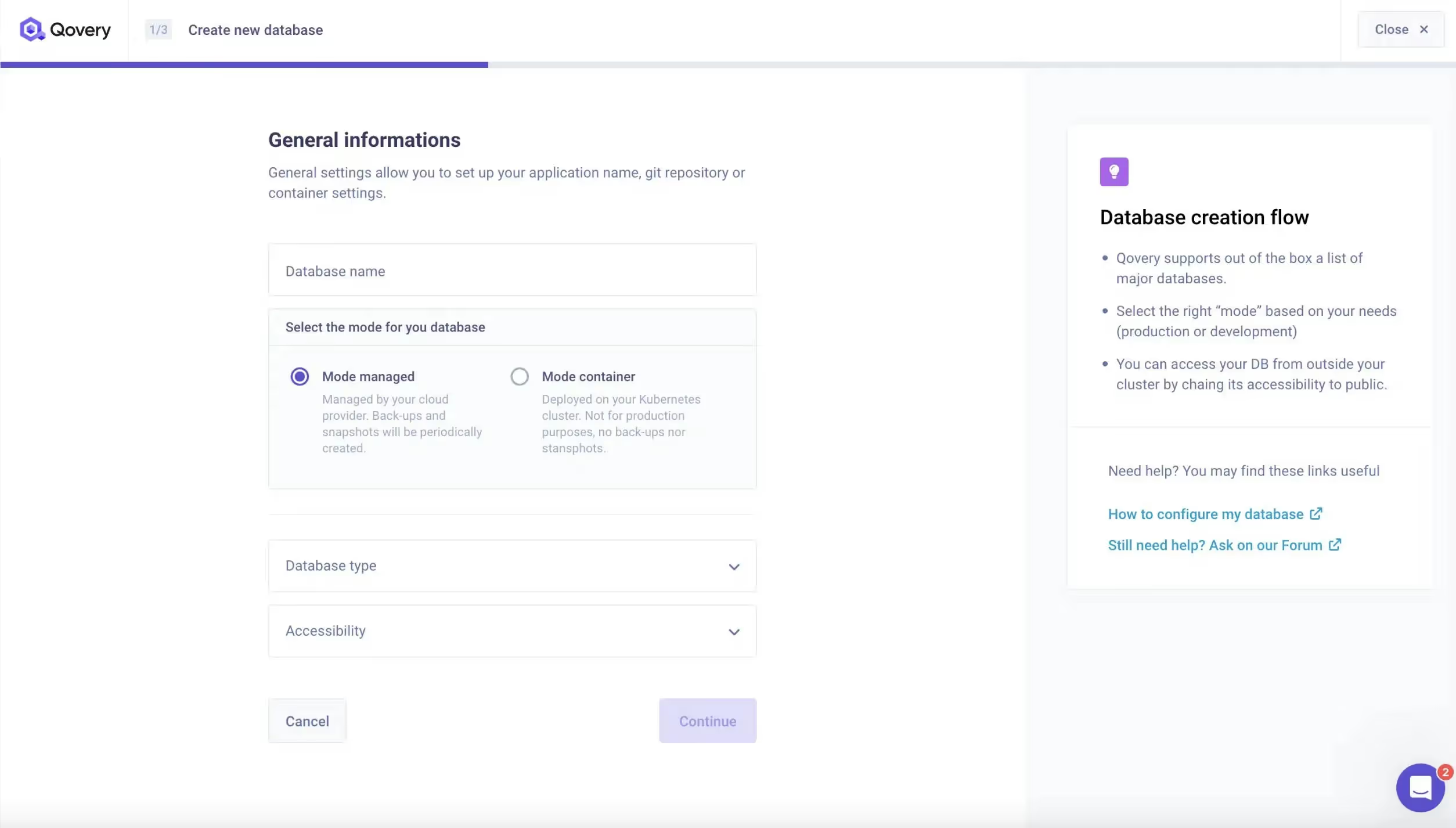
Cancel Deployment
While you could already Cancel an environment building in the case where you launch an unwanted deployment such as setting error, the wrong commit deployed, etc.). You want to cancel the deployment after the build rather than wait for the action to be completed and then perform a rollback as it can be time-consuming; well, it is now possible!
Here is a short video to show you how fast it is to Cancel a Deployment while building (it also works after the build); if you want to take a deeper look, here is our documentation.
RBAC and Container Demo By Romaric
Romaric made a great demo on the V3 console showing how and why you should use RBAC and Containers.
RBAC or Roles and Permissions Management System
Already been available for a few weeks in the API only; RBAC is now also available in the V3. If you don’t know what it is already, the Permissions and Role Management feature enable you, as an organization owner, you want to define specific roles for your organization members so that they can reflect their roles, rights and responsibilities within your organization. You can also personalize the roles you want to attribute to each person in your organization.
Container
Lastly, Romaric walks us through our container feature's public beta launch! Most of you have been waiting a long to deploy container applications from your private and public container registries. Since we launched Qovery, we were only supporting application deployment from your git repository - now, you can also deploy it from your container registry.
Why Use Container Instead of Application?
If you already use a CI system and have pushed your container images into your container registry, you might want to use those images and avoid rebuilding them. This is where deploying a container is useful.
Deploying an application is 4 steps - Qovery clones your Git Repository, builds your container image, pushes it into a private container registry, and deploys it.

Deploying a container is 2 steps - Qovery takes your container image from your container registry and deploys it.
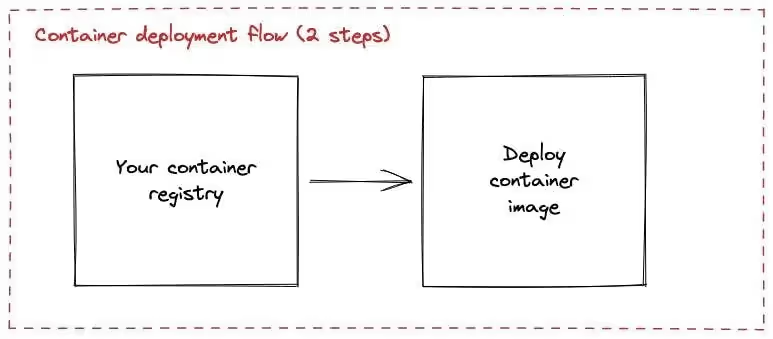
What’s next
We have plenty of feature and improvement to come, this include:
- New Deployment logs for the V3
- Upgrade to Kubernetes 1.22 or also Parallel Deployment
To see how is the status of what’s next, I really encourage you to take a look at our public Roadmap that we update as often as possible, you can also vote for feature that you would like to see and even summit some ideas.
Deploying Jobs Explained by Alessandro
One particular feature that has been wildly expected and that we are finally developing is Deploying Jobs.
There are two main use cases that we will cover with this implementation:
- Officially support scheduled jobs
Located on the V3 interface, there will be a new service within your environment, and you will be able to deploy the Cronjob from the URL or Container Registry; you will also be able to schedule the execution of your job and last but not least: follow the execution of the job within the Kubernetes cluster.
The job will be executed on your cluster as any other application we manage.
- Extend Qovery functionalities via environment lifecycle jobs
For the second use case, we are building the blocks that we will use to let you extend the core functionalities and empower your teams.
It will let you manage any resource we don’t cover today, like running jobs linked to the lifecycle of your environment.
It will allow you to:
- Seed your Database for the preview environment
- Create and maintain resources not natively managed by Qovery today (SQS, Lambda etc..)
- And many more use cases.
Wrapping up
We thank you again for joining us at this Demo Day and for your trust because our product, team, and vision would not be possible without your support.
If you have any questions, don’t hesitate to contact us or directly on the chat from our Forum, and we’ll see you for the next Qovery Demo Day. 💜
If you want to see the replay of our live event, it’s happening right below 👇🏻

Suggested articles
.webp)



.svg)
.svg)
.svg)
